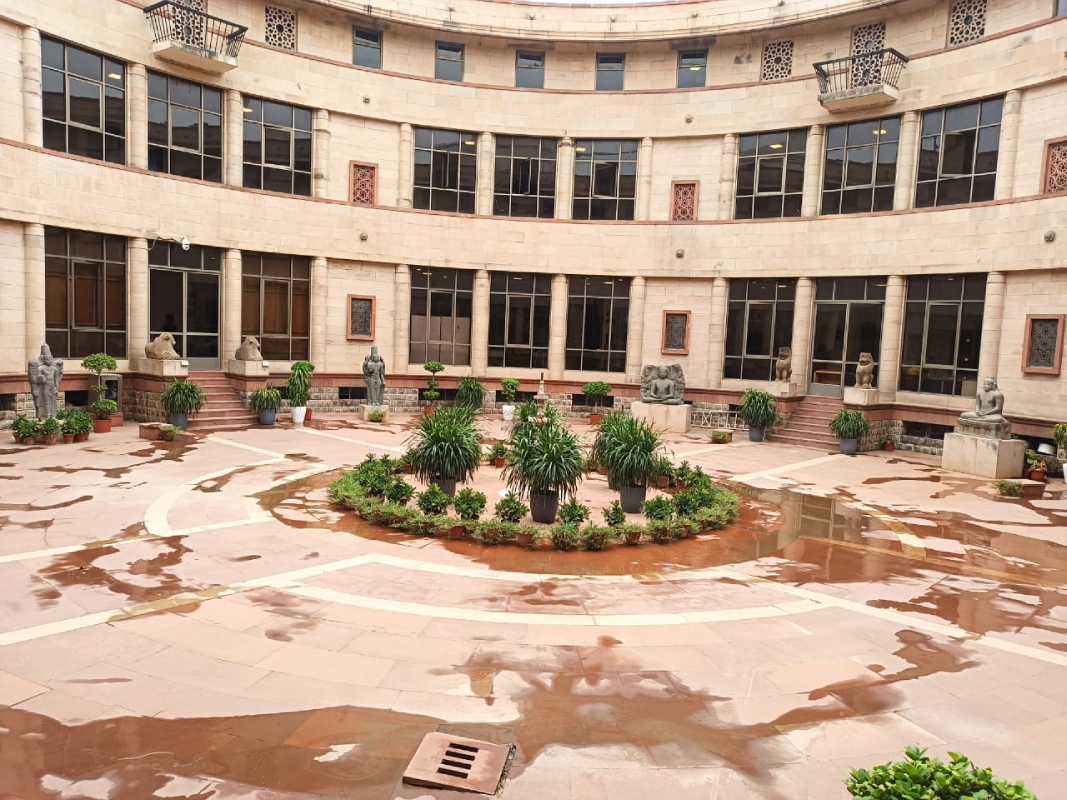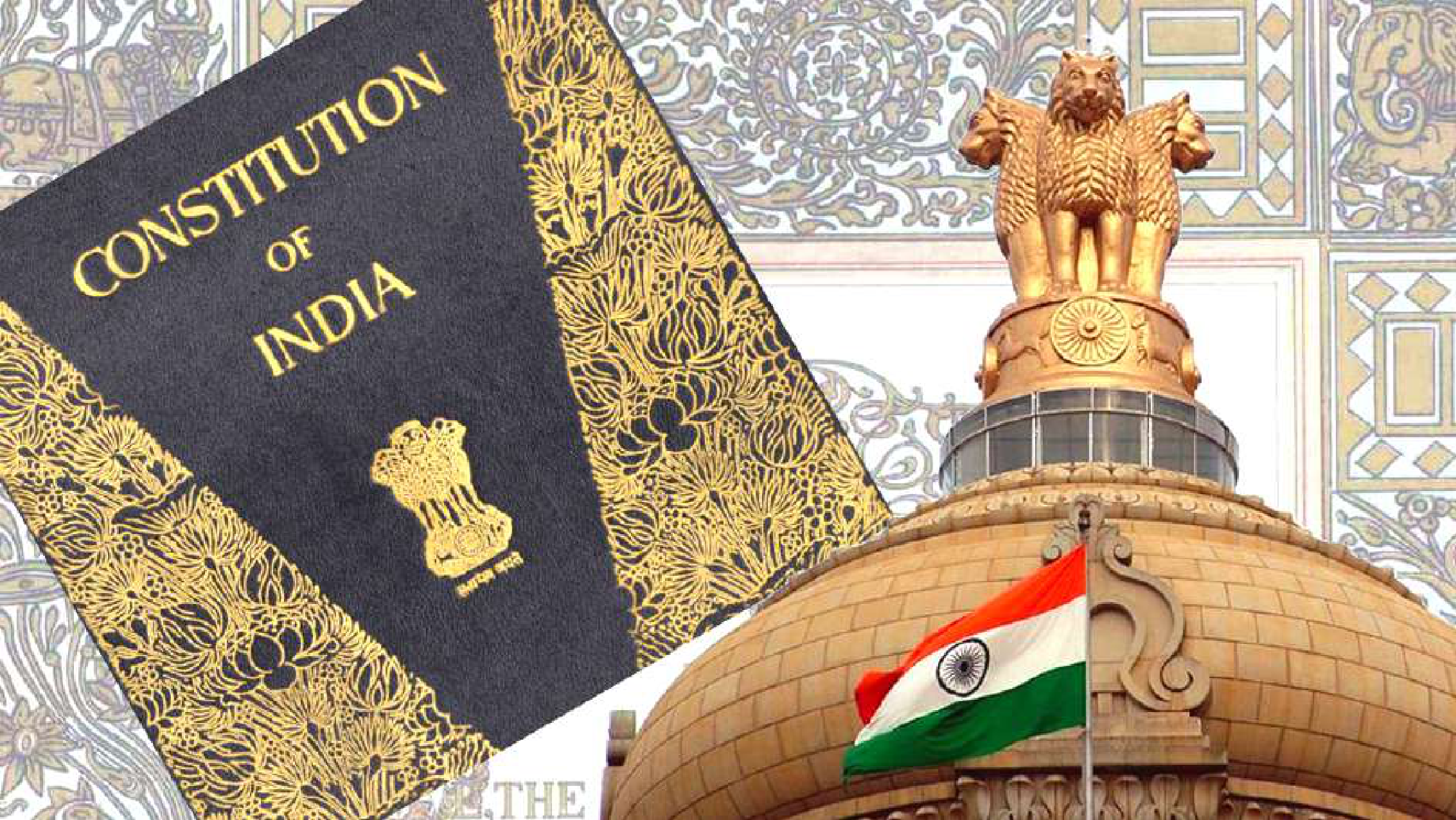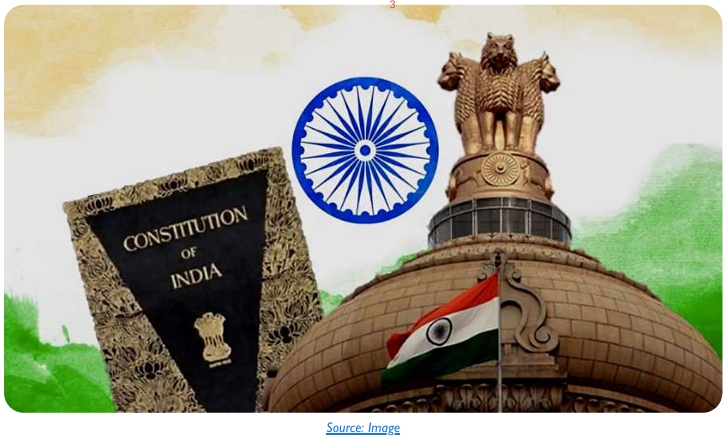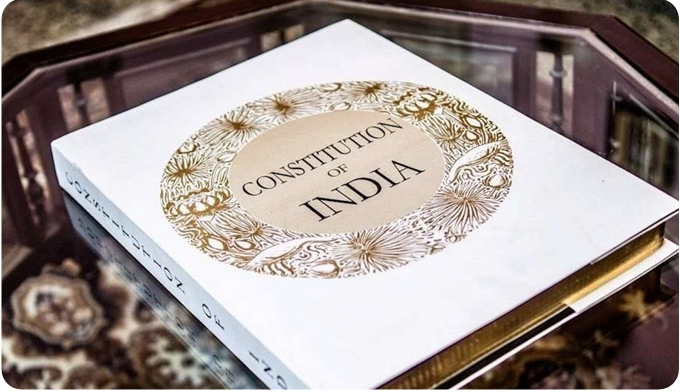Listen Audio
Introduction
Peoples who have been inhabiting India over the past three millennia, have evolved with migrations, invasions and local conflicts into heterogeneous communities, with diverse languages, castes, ethnicities, religious beliefs and different ways of life. During this long history, the people who had been inhabiting India were subjects of various rulers and dynasties, whose survival was dependent on fighting opponents on behalf of their rulers.
Throughout its history, there was no idea of Indian nationhood, there were no texts that organised the state on the basis of accountability to the public; there were no ideas of rights to equality, equal access to justice or freedom of worship for individuals in ancient or medieval India.
On 15th August 1947, people of India who had been subjects for three millennia, became citizens for the first time. As citizens have rights, the priorities for the newly independent nation were to develop stability, political and social equity, public safety and welfare of the People.
It required a modern State with a Constitution to conduct its public affairs based on justice, science and reason. It led to a Constitution which accepted values derived from humanitarian experience of India’s socio- religious philosophy, as well as organizing principles of the State enunciated in the political enlightenment.
The framers of the Indian Constitution wanted to create a modern society and they consciously chose not to use ancient religious texts and mythology that had sanctified social exclusion to create a rigidly hierarchical caste structure, that endowed monarchs with divine rights and priestly classes that kept the public steeped in superstition, taboos and mysticism to control. Instead, the framers of Indian Constitution sought out India’s wisdom that had inspired liberal ideas of its saints, Sufi philosophers and preachers of the Bhakti movement and India’s unique practices of syncretism.
An inclusive humanitarian constitution was and remains modern India’s grand narrative. It inspires values of equality, justice, respect for all religions, freedom of worship and fraternity with dignity of our diverse communities living in amity.
What are the elements of our country’s grand narrative?
Justice: it articulates individual and community rights for all to access justice equally. People were and are willing to suffer hunger and deprivation but will not accept injustice or unfair treatment. The idea of justice led a movement for social, economic and political justice against colonialism, caste hierarchy and social ills, monarchical control and majoritarian politics.
Liberty: The idea that all individuals should have basic civic freedoms to eat, live, worship follow customs and traditions of their choice, without infringing upon the rights and liberty of others. Liberty to express opinion and rights without fear is the essence of Freedom. One of the aspects of Liberty is religious freedom based on egalitarian respect of all religions by the state and all communities. These are two related ideas: that all people should be free to practice their own religious beliefs as their personal faith, without bigotry, intimidation, prejudice or indignity. In multi-denominational countries, it is essential for the state to ensure separation of politics from religion to protect the latter’s spirituality and people’s faith in their beliefs. And for that, the State must maintain a principled equidistance from all religious practices, without fear, favour or creating antagonism between religions.
Equality: In terms of treatment by law and in terms of opportunities for economic progress: Considering several communities had been historically disadvantaged and surviving on economic margins, the idea that societies and individuals should have fair opportunities to improve the quality of their lives. People should not be denied educational, social and economic growth by retention of caste and feudal hierarchies. The welfare State should provide appropriate facilities for the weak and the marginalised on the principle of equity: to each according to one’s needs, and from each according to one’s capacities. Equality also meant Gender Equality – it must manifest in equal rights, compensation and opportunities for men and women at work and homes. A major contribution to a nation’s development is participation of women in work force at all levels of economy. If tradition and custom inspired in some of our ancient texts impeded equal opportunities for men and women, these needed of interrogation on the basis of reason?
Fraternity and Dignity: The ideas that people in our nation live together in harmony, trust and social cohesion between different cultures, faiths and ethnic communities is strengthened by sharing commons assets of nature, accept common laws, respect common dignity, build common trust to develop a nation’s emotional integrity and unity. Underlying fraternity is tolerance – the idea that people should be tolerant and respectful of the country’s diverse peoples, their different traditions and ways of life, provided stability to society. All socio-economic differences between individuals should not be retained in a modern nation, as unequal privileges from our past. Social relations should be encouraged between people of different castes, religions, linguistic, regional and racial diversity. It provides the necessary bonding and cohesion in a multi- cultural Society, which is the bedrock of peace, harmony and its stability.
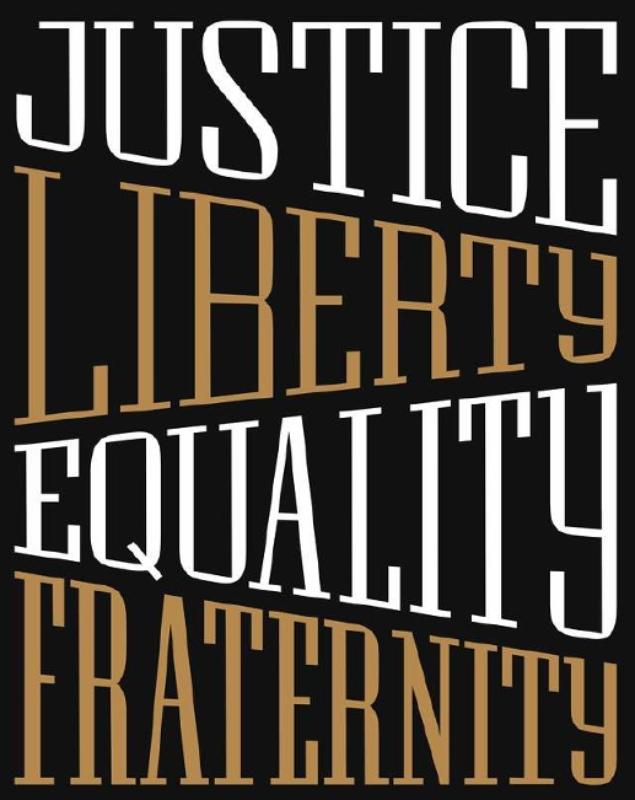
Impact of majoritarianism on sovereignty of citizens, minorities and deprived castes
- Parliamentary democracy in India is designed in a fusion model, wherein the representatives elected to the Legislature, also hold office in the Executive branches. This fusion of elected representatives lends itself to convergence of interest between majority of elected members in the Legislative Assemblies, the Executive Offices and the party members.
- As Party interests control Legislature as well as the Executive branches, the constituency interests of the elected representatives are subordinated, as Indian democracy is handicapped by lack of Separation of State Powers between the Legislature and Executive Branches. This allows the Executive Branch to overreach and limit independence of the Judiciary. This Executive overreach also renders legislative oversight to impair public accountability of developmental plans.
Consequently, severe limitations are found in application of Principles of: Checks and Balances; Public Accountability of the State to the Society; Supremacy of the Constitution and Rule of Law; and that’s how Freedom of Press is suppressed that aims to articulate public voice.
- Majoritarian sentiment based on whims of majority community overwhelms objectivity in casting of parliamentary vote. In this way, demographic minorities in multi- cultural countries, such as in India are handicapped by unequal access to justice, unequal economic opportunities, unequal standards of dignity and unequal liberty in terms of access to places of worship, even if they do not infringe on liberty of the others.
A major limitation of fusion models is that when a political party that represents majoritarian interests acquires overriding and unequal influence in the Executive, Legislature and the Judiciary, it begins to undermine equal benefits to all Citizens.
Unless all the three Branches of the State make concerted efforts to restore the constitutional principles, failing which, political conditions in the country would deteriorate the democratic framework, that could lead to instability of the country.
Examples of global consequences of majoritarianism on democratic states
Global evidence of consequences of majoritarian politics in post-colonial countries is unequivocal. Internal conflict launched by Buddhist Bamar majoritarian powers in Myanmar have not stopped their conflict for the past 75 years and is unlikely to end in the next 75 years either. Break up of Pakistan in 1971 was contributed by Punjabi linguistic and cultural majoritarianism, which refused to recognise majority vote of Bengali speaking Muslims from erstwhile East Pakistan. Over the 26 years of conflict in Sri Lanka was followed support of Buddhist Sinhala majoritarianism.
In former Yugoslavia, Serbian Orthodox majoritarianism broke, a significant power that was Yugoslavia, into seven small separate states. In post-colonial Sudan, Arab Muslim majoritarianism enacted Sharia laws to be applicable to whole of Sudan, which led to a civil war and genocide that broke away territories of the predominantly Christian, oil- rich South Sudan, and led to more than half the country suffering and starving from the current famine. Communal or tribal majoritarianism are also found at the roots of conflicts and genocide in other post-colonial countries, such as Biafra, Rwanda, Syria et al.
What are the ways to restore constitutional stability
Cultural and denominational differences or disputes are stabilized and resolved by the State Government’s enactment of policies to deepen and disseminate knowledge on constitutional values, principles, rights and duties in the whole of society.
By deepening public knowledge of Constitutionalism in the education sector, the public and private sectors would restore democratic stability to offset harmful effects of communal majoritarianism that targets minority to set examples of discrimination which is institutionalised against intellectuals and academics who may support liberal constitutions.
It is, therefore, an absolute necessity to have autonomy and independence of Judiciary, not only for timely justice delivery for a country of India’s size and diversity, but for survival of constitutional principles, such as sovereignty of citizens; separation of State powers; checks and balances; federalism et al.
Strengthening the Principles of Supremacy of the Constitution requires public knowledge and understanding. Independence and autonomy of Judiciary, requires an equally important process of accountability, to check corruption, nepotism and incompetence in the Judiciary. For these reasons, knowledge creation on Constitutionalism is essential in the college Faculties and among the school-teachers to produce a stream of educated young men and women, who in turn, would contribute to building Constitutional knowledge to debate its values and principles.
Organising principles of constitutional democracies
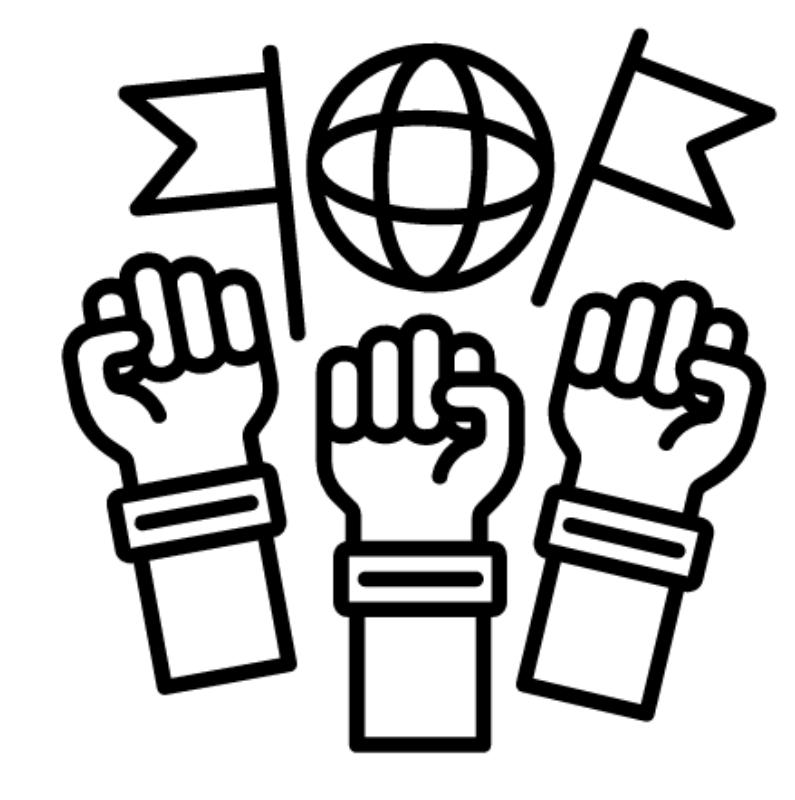
For several centuries, monarchies ruled territories in different parts of the World with absolute powers. Tyranny and despotism were the common practices to control communities, particularly those that did not practice the Monarch’s religion.
In the primeval and medieval World, the Rulers often demolished places of worship of the vanquished to demonstrate their power as the victors. However, modern societies which conduct public administrations on principles of constitutional democracies, restitution of justice are required to follow constitutional processes, rather than medieval methods of retribution of demolition or bulldozer.
In a democracy such as India, which functions on the basis of a Constitution that was designed on enlightened principles of individual and public rights, duties and directive principles to the state, which resonate with philosophy of Social Compact between the State and the Society. As most of the post-colonial democracies had designed their constitutions inspired by principles that created a welfare state, to provide people with equal rights and values for stability, harmony and sustainable peace in society.
Instability was and is endemic to state powers under monarchical or dictatorial controls. Public control in Majoritarian states is in that mould. That’s why globally people abjured majoritarian models to choose Constitutional democracy models, because it offered justice, equality, liberty, stability, dignity and public accountability to all its citizens. Democratic stability requires a state to be compliant with policies that strengthen constitutional principles. Some of these are discussed below:
- Sovereignty of Citizen. Instead of Sovereignty of hereditary monarch, oligarchy or a majoritarian dictatorial state, sovereignty of the People or Citizens can be truly exercised only when the value of Fraternity is realized. As BR Ambedkar urged: “the Constitution should strive towards creating unity among citizens by improving relations between different castes groups and religious communities.” To build bonds of brotherhood and create a socially cohesive nation, requires strengthening of Fraternity as a Constitutional value. It aims to assure dignity of individuals, emotional integrity of diverse people and provides unity for the Nation. A nation which is united in protection of its constitutional values and principles will enable sovereignty of its citizens.
- Separation of Powers of the State among its various organs. To enable sovereignty of citizens, monarchical powers are best separated between the Legislature, the Executive and the Judiciary, to enable each of these branches to function with autonomy and independence to ensure accountability of the state to the citizens. This separation of powers is necessary to ensure that no individual, no interest group and no Branch of the State gains excessive powers to destabilize the essential balance and equilibrium of the State.
- Checks and Balances on powers of the State. These are designed to prevent the acquisition of excessive power by any of the three Branches of the State or by any political party or individuals. Should a state fail to create legally implementable constitutional processes of effective checks and balances, it could lead to tyranny and authoritarianism in application of State power; weaken accountability processes of the State to Citizens; allow waste, fraud and abuse of authority by public servants and party confidants to the detriment of Citizens.
- Supremacy of the Constitution. It must be maintained to ensure transparency and compliance with laws enacted in the letter and spirit of the Constitution. It provides guidance for resolution of disputes or differences on matters of individual rights or provincial powers. Supremacy of the Constitution has to be maintained by all three branches of the State. (“in India the Constitution is supreme. All three wings of the democracy work under the Constitution,” Justice BG Gavai, Amravati, 25 June 2025) The spirit of the constitution identifies rule of law to balance powers of the Executive, the Legislature and the Judiciary. It ensures accountability of the State to the Society; citizens’ rights and civic freedoms are maintained by the Executive Branch; failing which, the citizens can call upon the Judiciary to provide rights.
- Rule of Law. Subscribes to the idea that all citizens are equal subject to the same laws, regardless of their social and economic status or political power they may hold. However, high a person may be in any position in the land, the rule of law will remain above all. As opposed to monarchical laws that are whimsical or majoritarian diktats that may be selectively applied through vigilant groups, on the basis of religious or cultural identity. It is important that the application of public laws in constitutional democracies generates trust and confidence among the weaker segments in the State.
- Representative Government. The democracy idea requires people to elect and send their representatives to the Parliament or Assembly. Those representatives who share political ideology and are the elected majority, form the Executive Committee of the Parliament. All other elected representatives have a constitutional responsibility to form oversight committees of the Parliament for good governance by the Executive. Their authority is to: monitor plans and verify the outcome of different Departments of the Government and hold them to account on behalf of the citizens. In this way the sovereignty of citizens is maintained. There is an erroneous majoritarian assumption, that majority of representatives in Parliament are holders of sovereignty.
- Limited Government. The elected government has to remain in Executive power for a fixed term or tenure based on confidence of the people assembled in the House. It requires periodic elections to be held to seek validation of the citizens. For the current representatives to seek an extension of tenure to serve the citizens, based on their performance review. It gives the citizens time and a process to decide their new representatives, to assess the candidate’s understanding of delivering directive principles of the state policy. That is why the election process and procedure have to be fair, transparent, impartial and accountable to society, to prevent misuse of spirit of election laws by the Executive officials and prevent them from acquiring partisan interests of the government in power. Which is just one step short of becoming authoritarian or
- Freedom of the Press. It is essential in democracy for people’s voices to speak truth to power. Freedom of the Press is essential for the media, for democratic rights and obligations of the citizens. It is essential to inform and alert the citizens of the limitations of the Executive and other Branches of the State. Unless the media honestly and accurately describes the problems in delivering constitutional rights to the citizens, the promise of Social contract made to the people by the three branches of the State, would remain unfulfilled.
- In large countries, democratic authority is not consolidated, but power requires division of powers between the States and the Centre for administrative efficiencies. This division of power has to be respected, so that national power must be delegated and shared with representatives in the State Assemblies because of their distinctive cultural and linguistic characteristics. Stability is maintained only if characteristics of Federalism is respected and maintained.
- Constitutional morality. Application of laws and decisions by all Branches of the State authorities must uphold ethical values and moral standards for society, which all citizens should aspire to. For Sovereignty of the People, righteousness is required in administrative conduct of the State and society. Only when all three Branches are fair, truthful and honest in their public conduct, only then can there be trust and stability among the people.
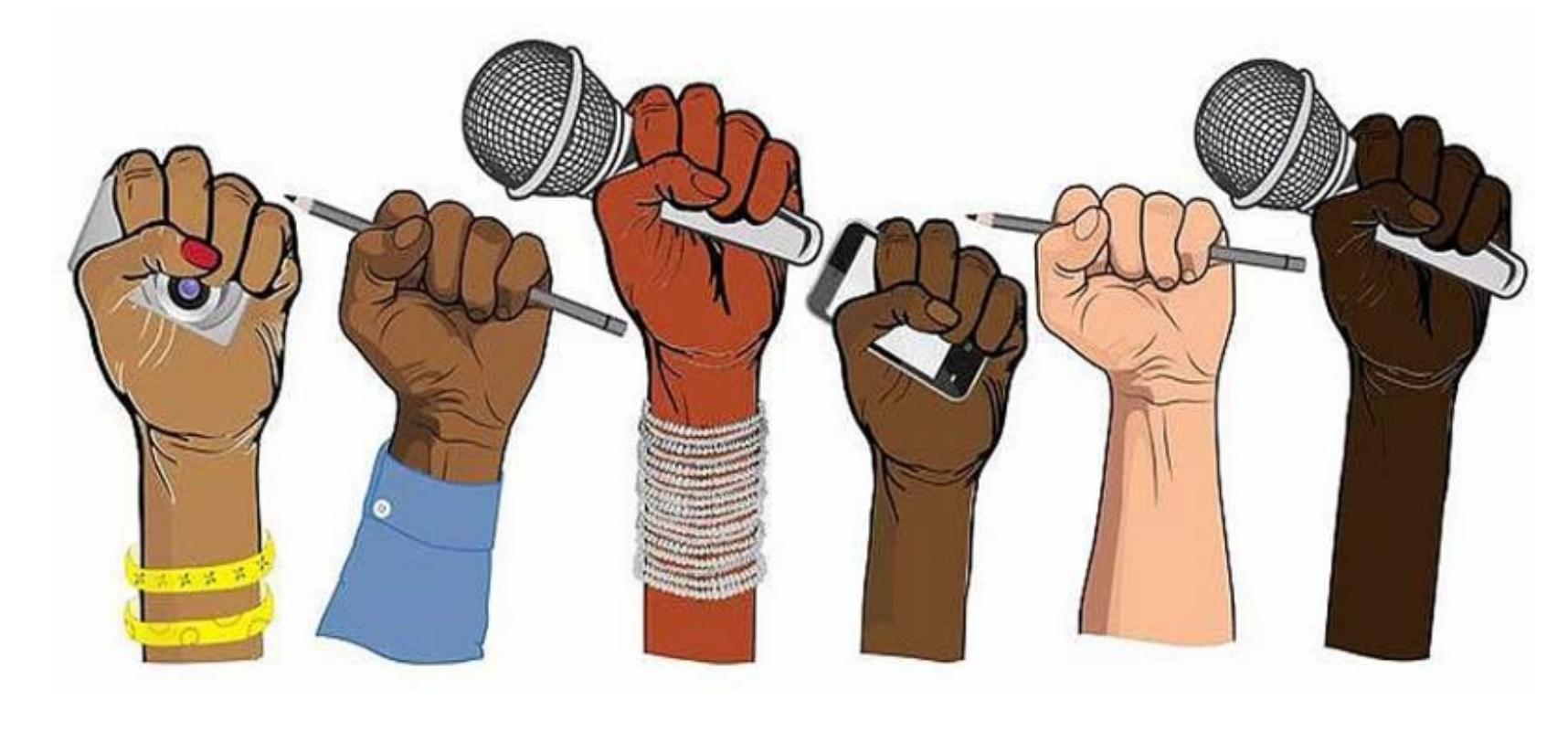
The framers of the Constitution expected that elected representatives of the future generations would ensure that laws enacted by the future Parliaments would protect reasons why the constitutional principles and values were incorporated. It is a moral responsibility of all elected representatives to deepen knowledge of the younger generations of all Indians of their Constitutional Values, Principles, Rights, Duties and Directive Principles of the State Policy. Failing which, this knowledge will disappear from public understanding. This obligation forms part of the Constitutional oath taken by all elected representatives to uphold the country’s Constitution.
It leads to the central questions: which segment of the Indian Society other than its education sector has the capacities and intellectual reach to debate and disseminate this knowledge to the whole of society? In what ways can members of faculty and students in Colleges and Universities organise debating societies to Strengthen Constitutional Values, Principles, our Rights, Duties and hold the elected representatives to account on the basis of Directive Principles of State?
Majoritarianism: Costs and consequences for the society
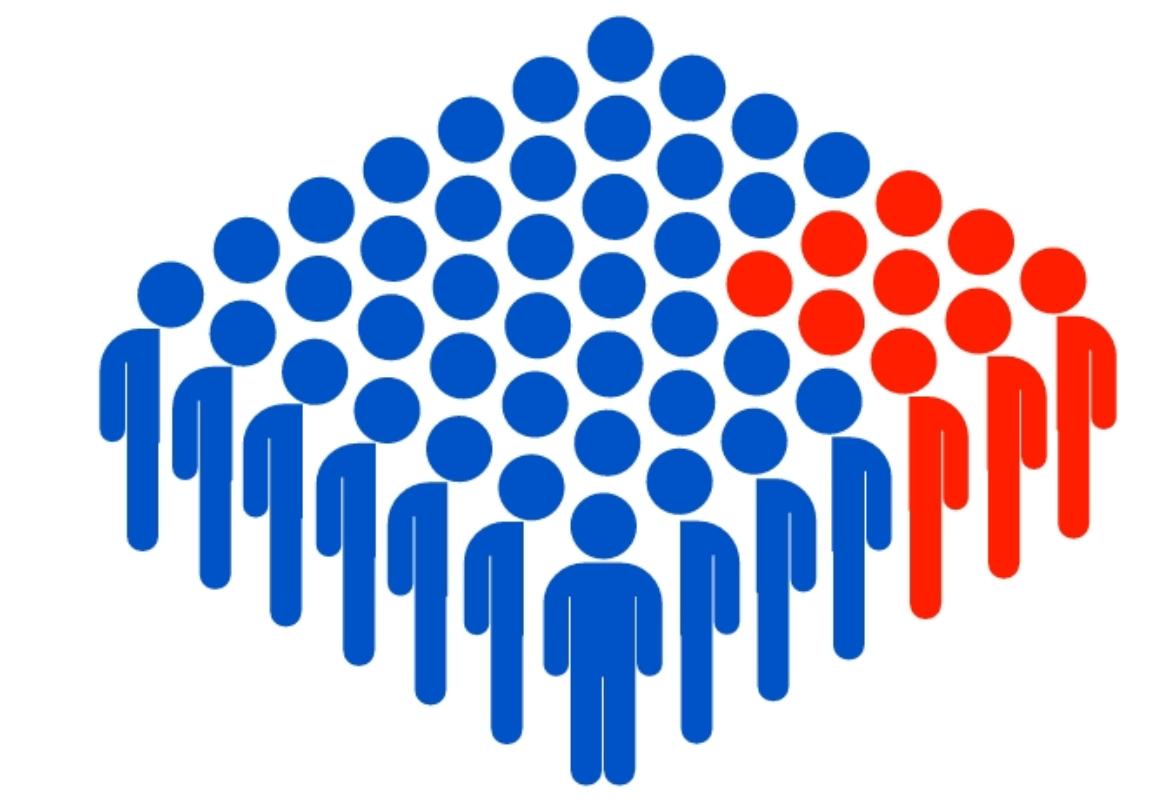
Opposed to nationalism based on inclusive humanitarian constitution a contrary ideology of nationalism is espoused by majoritarianism. It claims primacy for a community to establish primacy in politics and decision- making privileges, on the basis of its demographic majority be it: religion, language, caste, tribe or culture. In multi-cultural and multi-denominational democracies, majoritarian politics primarily represents exclusive interests and control by the country’s demographic majority. As majoritarian politics is neither inclusive nor representative of other communities in the country, it impedes equity and stability in any society.
A majoritarian state disregards primacy given to ideas of equality and humanitarian values be it justice, civil rights, dignity and fair economic opportunities. Instead, it gives primacy in politics, public affairs and exclusive constitutional privileges as natural rights of demographic majority.
As an ideology, majoritarianism prioritizes creation of political norms wherein minorities would remain marginalized to receive unequal treatment as in stratified Caste System as practiced in India‘s ancient civilization till the colonial period. The current majoritarian behaviour wants to perpetuate practices of domination on the rest of the society, that mirror of destruction, domination, subjugation, vigilante violence and extra judicial demolitions in India.
Majoritarianism in a multi-cultural and multi-denominational country, asserts that laws enacted in Parliament have to be accepted by the whole of society. Majoritarianism disregards ethics while using the fusion of Legislative and Executive authority, to secure a majority vote.
Majoritarian vote disregards laws of custom and usage, even though in some cases, it may not stand scrutiny of fundamental human values. This attitude goes on to disregard the constitutional principles that are the very essence of democratic purpose. Because such laws are challenged in judicial reviews, consequently majoritarian politics is critical of constitutional autonomy and independence of the Judiciary for maintaining its primacy, even above the common laws. Majoritarianism heightens socio-political risks, instabilities and local conflicts, which may lead to turbulence caused by its alignment with unconstitutional elements such as:
- Societal polarisation;
- Erosion of human rights;
- Erosion of civic freedoms;
- Inequality in human rights is not considered illegal in several
- Mobilisation of hate, indignities, public abuse and resentment in the majority as Indicators of disloyalty to the Nation;
- Internal displacement or migration follows primeval instincts of fight and
- Nationalism is defined by majoritarianism based on
Leaders who espouse majoritarian politics are aware of the absence of political ethics in their claims, and that’s why they tap into primal instincts to heighten fear for rallying public support for religion-based polarisation.
Strengthen constitutionalism in the education sector
The purpose of the initiative is to deepen public understanding of Constitutional Values, its organising principles to maintain social justice, economic equity, and fundamental freedoms. How should the education sector be empowered to implement practical ways and alternatives to overcome barriers and limitations for building Social Cohesion in society?
The Initiative has two objectives: one, knowledge creation by developing age-appropriate syllabus in all schools, colleges, all institutions in public and private sector organizations. India has 43 million students enrolled in the tertiary sector, which is estimated to go up to 76 million in 2030.
The second part of this Initiative is knowledge dissemination. It aims to train students to identify:
a) Which social, cultural and political aspects undermine our country’s Constitutional Values, Principles, Rights and Duties.
b) How should Directive Principles of State Policy be used by the society, to select public representatives and monitor welfare implementation and outcomes of political parties.
c) How interests that promote prejudice, discrimination, bias, bigotry polarise communities and society by arousing primal fear of religion is in danger.
d) Ways and alternatives to strengthen and disseminate Constitutional values; how should public understanding of Constitution be strengthened for implementation in the whole of society.
The initiative should also aim at developing an understanding among the students of the reasons why we need to strengthen public understanding of our Constitution. It could be conducted in the following formats:
A) Undergraduate levels by conducting debates at the colleges for students of all Departments
i) Organise debates on Campus for building knowledge and understanding of constitutional values and principles among the students for all Departments.
ii) Organise debates off Campus to understand threats, challenges and problems to implement the Constitution. What are the cultural or other limitations in Strengthening Constitutional Values and Principles in society?
B) For Post-graduate students:
iii) Organise Public Roundtable Discussions within University Campus and at public fora outside the Campus to discuss major constitutional questions. Participants to include Students, Faculty members, Legal experts or retired judges, elected Representatives, Media, and Activists.
iv) Organise Public Reading Circles within University Campus and at public fora outside the Campus to discuss barriers, limitations and opportunities to implement constitutional values, principles, Rights, Duties and Directive Principles of State Policy in the society.
These debates in the academia and public forum should be carried in the media in both English and in Vernacular languages.
iv) PG students with sufficient skills should lead discussions in the Villages that explain why our Constituent Assembly enshrined these Constitutional Values, Principles, Fundamental Rights, Fundamental Duties and Directive Principles of State Policy. These discussions could be held within Panchayats, Gram Sabhas and Village schools.
Conclusion
There are two dominant political ideologies which are contesting for the soul of India and promises of good governance that were made to the society:
One is Democratic Constitutionalism, with its default positions of public accountability, rule of law instead of Laws of Rulers.
The second calls for Majoritarianism, to mirror primeval monarchical pomp and glory to control through messages of myth, mysticism and promise of divinity.
There are three areas of policy impact which should be assessed by the thinking public to understand relative costs and benefits from these two contesting philosophies in terms of:
i) social justice; civil liberties and freedoms of belief, and personal
ii) stability and trust for local and all India commercial activities, business and sustainable economic
iii) public and gender safety, internal security for political violence, social cohesion to meet external threats with resilience.

